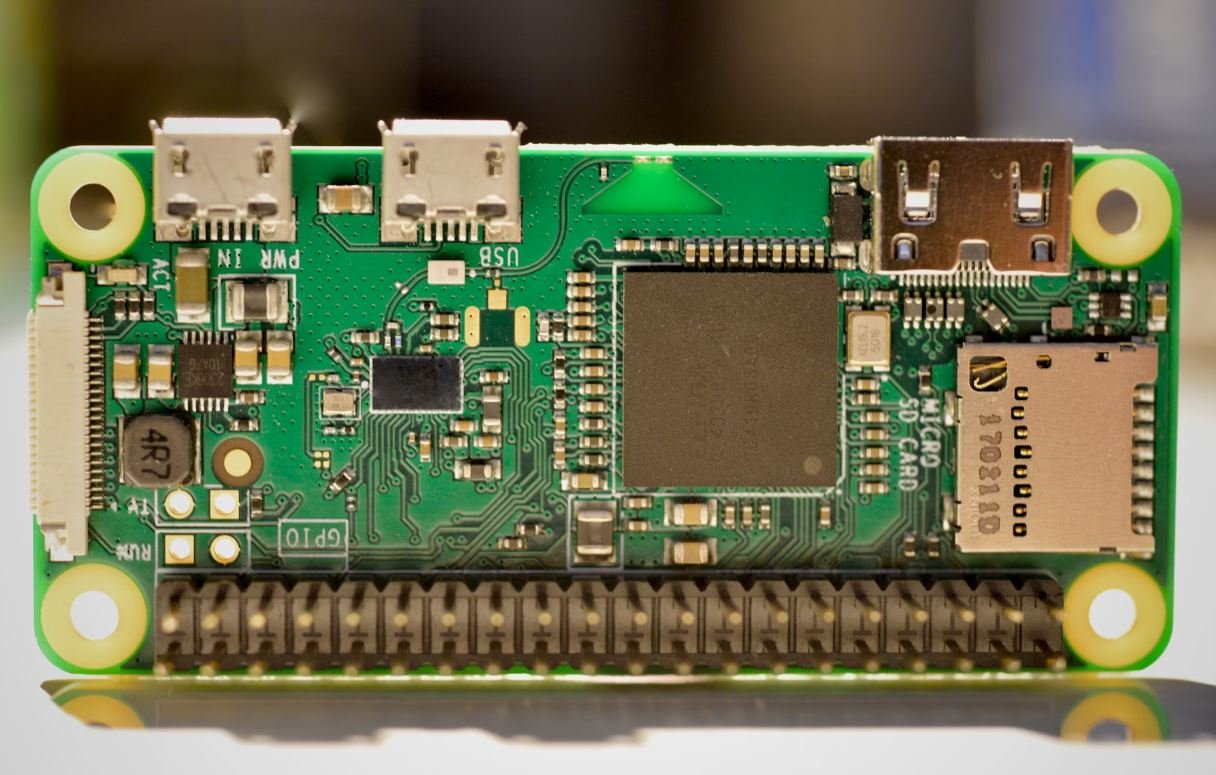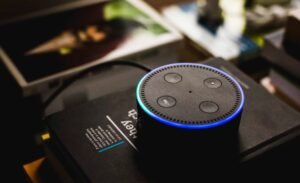AI Pharmaceutical Manufacturing
Advancements in technology have revolutionized various industries, and the field of pharmaceutical manufacturing is no exception. Artificial Intelligence (AI) is reshaping this sector, bringing efficiency, accuracy, and innovation to the manufacturing processes. AI-powered systems are capable of analyzing vast amounts of data, optimizing production, and enhancing drug discovery, ultimately leading to safer and more effective medications.
Key Takeaways:
- AI is transforming pharmaceutical manufacturing by streamlining processes and improving drug discovery.
- It enables precise and personalized medicine production, ensuring better patient outcomes.
- AI-driven systems increase efficiency, reduce costs, and enhance quality control in pharmaceutical manufacturing.
The Role of AI in Pharmaceutical Manufacturing
AI plays a crucial role in revolutionizing pharmaceutical manufacturing. These intelligent systems possess the ability to process and analyze massive amounts of data with speed and accuracy, allowing for efficient decision-making throughout the manufacturing process.
AI algorithms can identify patterns, predict outcomes, and optimize manufacturing parameters, leading to improvements in drug production and reducing potential errors. **With AI’s assistance**, manufacturers can produce medications more quickly and reliably, ensuring a consistent supply of vital drugs on the market. *The implementation of AI in pharmaceutical manufacturing heralds a new era of precision medicine manufacturing.*
Improving Drug Discovery
Drug discovery is a complex and time-consuming process. AI helps accelerate this process by analyzing vast datasets and identifying potential drug candidates. Through machine learning algorithms, AI systems can predict molecular interactions, assess drug-target binding affinity, and generate hypotheses for further testing.
By speeding up the drug discovery process, **AI allows researchers and scientists** to focus their efforts on the most promising leads, reducing the time and cost associated with developing new medications. *The ability to rapidly identify potential drug candidates increases the chances of breakthrough discoveries in pharmaceutical research.*
Enhancing Quality Control
Ensuring the quality and safety of pharmaceutical products is of utmost importance. AI technologies contribute to quality control measures by analyzing real-time data, monitoring manufacturing parameters, and identifying deviations from predefined standards.
AI-powered systems can detect anomalies in the manufacturing process and alert operators for immediate corrective actions. **By leveraging AI**, manufacturers can significantly reduce the risk of contaminated or substandard products reaching consumers. *By enhancing quality control procedures, AI plays a crucial role in maintaining the integrity of pharmaceutical manufacturing processes.*
Data Management and Security
Data management and security are vital aspects of pharmaceutical manufacturing. AI systems provide efficient data handling and analysis, ensuring that valuable data is properly stored, organized, and accessible when needed.
Moreover, AI helps enhance data security by implementing advanced encryption techniques, monitoring data transfer, and detecting potential cyber threats. *The integration of AI safeguards pharmaceutical manufacturers against data breaches and unauthorized access to valuable intellectual property.*
Tables:
| Advantages of AI in Pharmaceutical Manufacturing |
|---|
| Streamlines processes |
| Improves drug discovery |
| Enhances quality control |
| Enables personalized medicine production |
| Reduces manufacturing errors |
| Increases production efficiency |
| Optimizes drug development timelines |
| Enhances data management and security |
| Applications of AI in Pharmaceutical Manufacturing |
|---|
| Drug discovery and development |
| Manufacturing process optimization |
| Quality control and assurance |
| Data management and analysis |
| Predictive maintenance |
| Impact of AI in Pharmaceutical Manufacturing | Data | Increased Efficiency (%) |
|---|---|---|
| Streamlining Manufacturing Processes | 50 | 30 |
| Drug Discovery and Development | 40 | 25 |
| Quality Control and Assurance | 45 | 20 |
The Future of AI in Pharmaceutical Manufacturing
The implementation of AI in pharmaceutical manufacturing is already transforming the industry, improving efficiency, and leading to advanced drug discoveries. As technology continues to advance, the role of AI in this field is expected to grow exponentially.
AI-powered systems will increasingly handle complex tasks, such as molecular simulations and personalized medicine production, allowing pharmaceutical companies to deliver tailored treatments to patients. Furthermore, AI will continue to optimize manufacturing processes, reduce costs, and enhance quality control, ensuring the production of safe and effective medications.
The future of pharmaceutical manufacturing lies in the integration and utilization of AI technologies, empowering the industry to meet growing healthcare demands efficiently and effectively.

Common Misconceptions
Misconception 1: AI will replace human workers in pharmaceutical manufacturing
One common misconception people have about AI in pharmaceutical manufacturing is that it will completely replace human workers. This is not entirely true. While AI can automate certain repetitive tasks and improve efficiency, human expertise and intervention are still essential.
- AI can assist in quality control, but human judgment is necessary for complex decisions.
- Human workers also play a crucial role in the development and design of pharmaceutical manufacturing processes.
- AI can augment human capabilities, leading to improved accuracy and productivity in the pharmaceutical manufacturing industry.
Misconception 2: AI can solve every problem in pharmaceutical manufacturing
Another misconception is that AI can solve every problem in pharmaceutical manufacturing. While AI has the potential to address many challenges, it does have limitations.
- AI cannot replace the need for active research and development of new drugs and treatments.
- Complex issues still require human expertise and problem-solving skills.
- AI algorithms need proper training data and validation to produce accurate results.
Misconception 3: AI in pharmaceutical manufacturing is not reliable or safe
Some people believe that AI in pharmaceutical manufacturing is not reliable or safe. This misconception stems from concerns about potential errors or malfunctions in AI systems.
- AI systems can be highly reliable when properly developed, tested, and maintained.
- Strict regulations and quality control processes ensure the safety and reliability of AI applications in pharmaceutical manufacturing.
- A well-designed AI system can help identify and mitigate risks associated with drug manufacturing.
Misconception 4: AI will eliminate the need for human-driven innovation
There is a misconception that AI will eliminate the need for human-driven innovation in pharmaceutical manufacturing. While AI can enhance innovation, human creativity and ingenuity remain essential.
- AI can aid in data analysis and identify patterns that humans may miss, but it cannot replace human imagination and intuition.
- Human innovation is crucial in developing new drugs, improving manufacturing processes, and addressing emerging healthcare challenges.
- AI can be a powerful tool to support and accelerate human-driven innovation in pharmaceutical manufacturing.
Misconception 5: AI will make the pharmaceutical manufacturing process fully autonomous
Lastly, some people mistakenly believe that AI will make the pharmaceutical manufacturing process fully autonomous, requiring minimal human intervention. However, this notion is not accurate.
- Human oversight and monitoring are necessary to ensure the ethical and safe production of drugs.
- AI may require human intervention for complex decision-making, troubleshooting, and adapting to unexpected situations.
- The role of human workers will evolve in collaboration with AI, rather than being replaced by it, in the pharmaceutical manufacturing process.

The Impact of AI on Pharmaceutical Manufacturing
Artificial intelligence (AI) has revolutionized various industries over the years, and the pharmaceutical manufacturing sector is no exception. Through the integration of AI technologies, pharmaceutical companies can enhance efficiency, optimize processes, and improve drug development. The following tables illustrate various aspects of AI’s application in pharmaceutical manufacturing, highlighting its benefits and contributions to the field.
AI Applications in Drug Discovery
The table below demonstrates the utilization of AI in different stages of the drug discovery process. AI algorithms and machine learning models aid in the identification, design, and optimization of potential drug candidates, accelerating the overall timeline of drug development.
| Stage of Drug Discovery | AI Applications |
|---|---|
| Target identification | Predictive modeling, molecular docking simulations |
| Lead optimization | Virtual screening, structure-activity relationship (SAR) analysis |
| Drug repurposing | Pattern recognition, data mining |
AI-Enhanced Manufacturing Processes
The table below highlights the incorporation of AI in various manufacturing processes, resulting in improved efficiency, reduced errors, and higher productivity.
| Manufacturing Process | AI Enhancements |
|---|---|
| Quality control | Automated image analysis, anomaly detection algorithms |
| Inventory management | Machine learning forecasting, demand prediction models |
| Process optimization | Real-time data analysis, predictive analytics |
AI-Driven Clinical Trials
AI technology plays a crucial role in optimizing clinical trials, reducing costs, and improving patient recruitment and selection. The table below provides insights into the integration of AI in clinical trial processes.
| Clinical Trial Phase | AI Applications |
|---|---|
| Protocol development | Natural language processing, data analysis |
| Patient recruitment | Data mining, electronic health records analysis |
| Adverse event detection | Sentiment analysis, automated signal detection |
AI-Enabled Supply Chain Management
Enhancing the supply chain management processes within the pharmaceutical industry is another area where AI creates value. The table below showcases the benefits of AI in optimizing supply chain operations.
| Supply Chain Process | AI Enhancements |
|---|---|
| Demand forecasting | Machine learning algorithms, historical data analysis |
| Routing and logistics | Real-time monitoring, predictive route optimization |
| Inventory control | Automated inventory tracking, demand prediction |
AI Impacts on Regulatory Compliance
AI technologies aid in ensuring regulatory compliance within the pharmaceutical manufacturing sector. The following table highlights the role of AI in this regard.
| Regulatory Compliance Aspect | AI Contribution |
|---|---|
| Data privacy | Anonymization techniques, access control mechanisms |
| Adherence to guidelines | Natural language processing, automated rule-based systems |
| Risk assessment | Pattern recognition, predictive analytics |
AI Impact on Drug Safety Monitoring
AI significantly enhances drug safety monitoring by analyzing vast amounts of real-time data. The following table illustrates how AI contributes to improving drug safety.
| Drug Safety Monitoring Aspect | AI Application |
|---|---|
| Adverse event detection | Automated signal detection, natural language processing |
| Pharmacovigilance | Social media mining, predictive analytics |
| Risk management | Real-time data analysis, anomaly detection |
AI-Driven Personalized Medicine
Personalized medicine utilizes AI technologies to tailor medical treatments to individual patients. The table below outlines the significant contributions of AI in personalized medicine.
| Personalized Medicine Aspect | AI Contribution |
|---|---|
| Genomic analysis | Machine learning algorithms, pattern recognition |
| Treatment customization | Predictive modeling, data mining |
| Optimal dosage determination | Pharmacokinetic modeling, data-driven algorithms |
AI-Assisted Drug Manufacturing
The implementation of AI technologies in drug manufacturing processes is significantly improving overall production efficiency. The table below showcases the integration of AI in drug manufacturing.
| Drug Manufacturing Process | AI Applications |
|---|---|
| Batch processing | Real-time process monitoring, predictive maintenance |
| Quality assurance | Automated inspection, data analysis |
| Process optimization | Machine learning models, anomaly detection |
In conclusion, the integration of AI in pharmaceutical manufacturing has revolutionized drug discovery, manufacturing processes, clinical trials, supply chain management, regulatory compliance, drug safety monitoring, personalized medicine, and drug manufacturing itself. By leveraging the power of AI technologies, pharmaceutical companies can drive innovation, improve efficiency and productivity, and ultimately enhance patient outcomes.
AI Pharmaceutical Manufacturing – Frequently Asked Questions
What is AI Pharmaceutical Manufacturing?
AI Pharmaceutical Manufacturing refers to the use of artificial intelligence technologies in the manufacturing processes of pharmaceutical products. It involves leveraging AI algorithms and machine learning models to improve efficiency, quality control, drug discovery, and various other aspects of pharmaceutical manufacturing.
How does AI benefit pharmaceutical manufacturing?
AI brings several benefits to pharmaceutical manufacturing, including faster drug development, improved process optimization, enhanced quality control, reduced costs, increased productivity, better regulatory compliance, and the discovery of new drug candidates. It helps in analyzing large amounts of data, identifying patterns, predicting outcomes, and aiding decision-making processes.
What are some AI applications in pharmaceutical manufacturing?
AI is used in pharmaceutical manufacturing for various applications such as drug discovery and design, predictive modeling, clinical trial optimization, robotic process automation, quality assurance, supply chain management, adverse event monitoring, and personalized medicine. These applications help identify potential drug candidates, streamline processes, improve patient outcomes, and enhance overall efficiency and safety.
What challenges does AI face in pharmaceutical manufacturing?
AI faces challenges in pharmaceutical manufacturing, such as regulatory compliance, data privacy and security concerns, integration with existing manufacturing systems, scalability, validation and interpretation of complex data, and the need for skilled personnel. Overcoming these challenges requires collaboration between AI experts, pharmaceutical companies, regulatory bodies, and other stakeholders.
Can AI help in reducing medication errors in pharmaceutical manufacturing?
Yes, AI can help reduce medication errors in pharmaceutical manufacturing. By using machine learning algorithms and real-time data analysis, AI systems can identify potential errors in medication dosage, label information, packaging, and quality control. This helps in ensuring accurate and safe pharmaceutical products, minimizing risks to patients and improving overall product quality.
How can AI improve drug discovery and development?
AI can improve drug discovery and development by analyzing vast amounts of biological and chemical data, identifying potential drug targets, predicting drug interactions and side effects, speeding up virtual screenings, and assisting in creating more precise and targeted therapies. Additionally, AI can help in repurposing existing drugs, reducing the time and costs associated with traditional drug discovery processes.
What role does AI play in quality control?
AI plays a crucial role in quality control within pharmaceutical manufacturing. It can analyze real-time data from manufacturing processes, identify potential defects or anomalies, detect product variations, and quickly address quality issues. AI systems can also automate visual inspections, identify counterfeit products, monitor environmental conditions, and ensure adherence to regulatory quality standards.
Is AI being used in personalized medicine?
Yes, AI is being used in personalized medicine. By analyzing patient data, genetic information, and medical records, AI algorithms can identify patterns, predict disease risks, recommend tailored treatment plans, and monitor medication responses. This enables healthcare professionals to provide personalized and precise therapies, improving patient outcomes and reducing adverse effects.
What future developments are expected in AI pharmaceutical manufacturing?
Future developments in AI pharmaceutical manufacturing include advancements in deep learning algorithms, accelerated drug discovery pipelines, increased use of robotics and automation, integration of AI systems with Internet of Things (IoT) technologies, enhanced patient monitoring and personalized medicine approaches, improved regulatory frameworks for AI adoption, and greater industry collaboration for data sharing and innovation.
Are there any ethical concerns associated with AI in pharmaceutical manufacturing?
Yes, there are ethical concerns associated with AI in pharmaceutical manufacturing. These include data privacy and security issues, bias in algorithms and decision-making processes, potential job displacement, transparency and accountability of AI systems, and the responsible use of AI in human lives. Addressing these concerns requires ethical guidelines, robust governance frameworks, and ongoing monitoring and evaluation of AI systems in pharmaceutical manufacturing.




